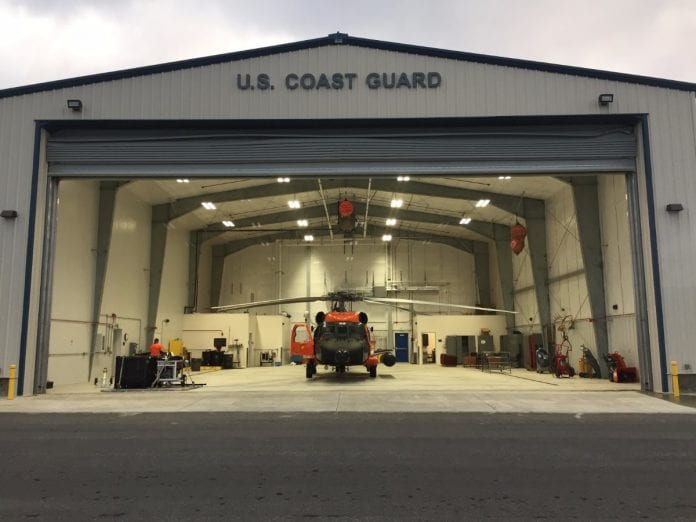
After decades of fighting to complete a road between the small Aleutians fishing community of King Cove and the all-weather airport at Cold Bay, the battle may finally be over. Or is it?
Officials with the Aleutians East Borough say an agreement has been reached on a land exchange between the Interior Department and the King Cove Corp. that would allow for completion of a road between the two communities, a ground link for transporting King Cove residents in medical emergencies to Cold Bay, for flights to medical facilities in Anchorage.
The sticking point is that the proposed connection runs through Izembeck National Wildlife Refuge, including a strip of land with a lagoon known to have the world’s largest bed of eelgrass that is fed on by Pacific brant, Steller’s eiders and other migratory waterfowl during their migration south for the winter.
Oldtimers born and raised in the area remember when thousands of American soldiers stationed there during World War II, years before the area became a wildlife refuge, ran motor vehicles all over the area and area residents continued to hunt there for subsistence, while the wildlife population remained sustainable.
Several environmental entities, including The Wilderness Society, are adamant that the road would be harmful to waterfowl and other area wildlife, and that it would set a dangerous precedent that would endanger refuges and wilderness areas nationwide, undermining The Wilderness Act, National Environmental Policy Act, National Wildlife Refuge Improvement Act and the Alaska National Interest Lands Conservation Act.
“We respect the transportation needs of King Cove, but the U.S. Army Corps of Engineers has determined that viable non-road alternatives exist to meet the community’s needs while protecting the global significance of the Izembek refuge and its wildlife,” said Nicole Whittington-Evans, Alaska regional director for The Wilderness Society.
The Trump administration, she said, “does not have the legal authority to take this action, and we will challenge them in court to ensure this irreplaceable wilderness area remains intact.”
The King Cove Corp., the Alaska Native village corporation at King Cove, representing the Agdaagux Tribe, supports the road as a safe route to take in medical emergencies, when weather conditions make travel to Cold Bay by aircraft or boat dangerous. So does the city of King Cove and the Aleutians East Borough.
The agreement calls for an equal value land exchange, but it is unclear at this point how much land will be involved, said Laura Tanis, public information officer for the Aleutians East Borough.
After the formal signing of the agreement in Washington D.C. by late January, there will be a detailed appraisal process guided by the federal government land appraisal and evaluation standards that will ideally culminate with a land exchange and conveyance of enough land require to facilitate construction of the remaining 11 miles of road, Tanis said.
The land appraisal process itself could take four to six months or longer, and beyond that decisions are yet to be worked out on the route of those connecting miles and timelines for construction of the road, she said. At this time, it is expected that the state of Alaska will pay the cost of building those miles, at an estimated cost of $11 million, she said.
Meanwhile residents of King Cove, home of the year-round Peter Pan Seafoods processing facility, remain hopeful that this time the deal will go through.
They thought it was a done deal back in December of 2013 when on Dec. 23 then Interior Secretary Sally Jewell rejected construction of some 11 miles of road to connect with existing gravel road between King Cove, population 989, and Cold Bay, population 122.
Jewell concluded that the road would result in irreversible damage to the refuge and wildlife dependent on it.
Now area residents, having once again negotiated what looks like a deal agreeable to both sides, are hopeful that the Trump administration will allow the road to go through.













